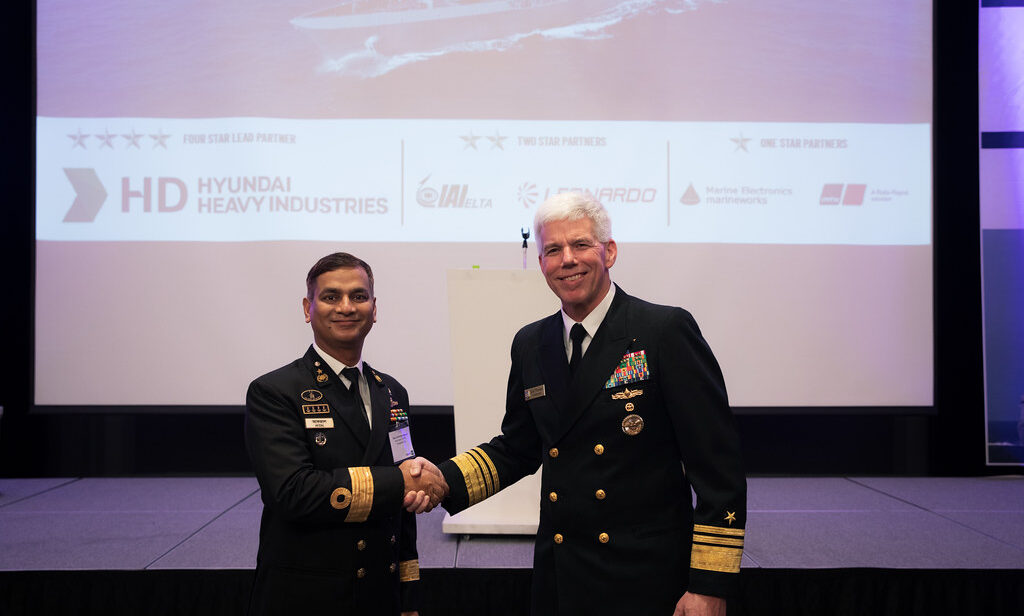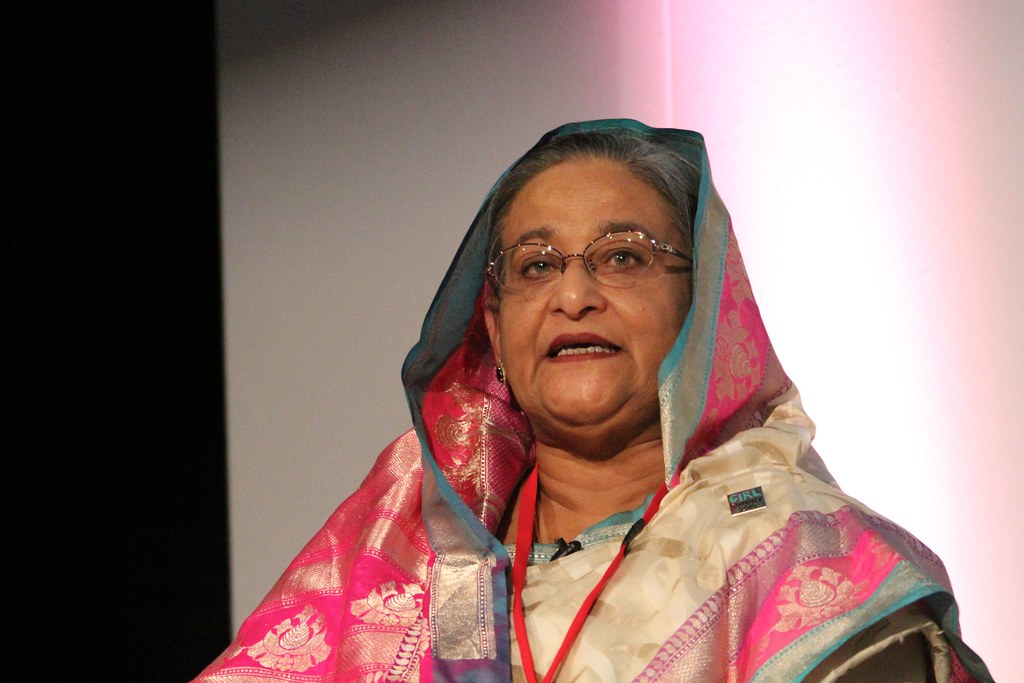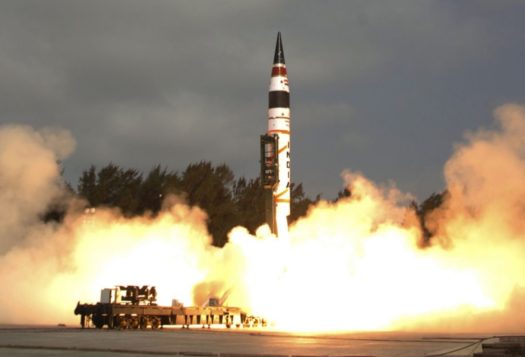
Bangladesh and the United States convened their 9th Bilateral Security Dialogue on September 5, 2023, in Dhaka, signifying an important moment in the progressive consolidation of bilateral security cooperation. The month before, senior officers from the U.S. and Bangladesh militaries engaged in the Bilateral Defense Dialogue, contributing diverse thoughts and aspects to shared security challenges.
Both dialogues testify to the evolving nature of U.S.-Bangladesh defense and security relations. They lay the groundwork for enhanced collaboration on a wide array of bilateral, regional, and global security issues, including, but not limited to, strategic goals and regional security challenges, military collaboration, civilian security cooperation, United Nations peacekeeping, counter-terrorism, and fighting violent extremism.
Coming at a time of growing strategic convergence between Bangladesh and the United States, the latest round of talks reflected the strength of defense ties and set the stage for greater counterterrorism and military cooperation. Deputy Assistant Secretary of State for Regional Security Mira Resnick said that the United States is interested in assisting Bangladesh in modernizing its military by investing in its maritime domain awareness.
Growing U.S.-Bangladesh defense and security cooperation has strategic implications for the region. Bilateral training initiatives and exchanges facilitate greater interoperability between the countries’ military and coast guard forces. This is expected to enhance their capacity to respond jointly to natural disasters, terrorism, and other contingencies in the Bay of Bengal region.
Coming at a time of growing strategic convergence between Bangladesh and the United States, the latest round of talks reflected the strength of defense ties and set the stage for greater counterterrorism and military cooperation.
There are pre-existing bilateral challenges in the relationship that could impact future cooperation. The United States has sanctioned Bangladesh’s Rapid Action Battalion (RAB), Bangladesh’s elite paramilitary force, due to human rights violations. It has also placed restrictions on different political individuals. The United States has been concerned about Bangladesh’s democracy and is urging the government to conduct a free and fair election in the upcoming 2023 elections. Despite that, security cooperation will continue to be a significant platform for bilateral engagement, with consistent security dialogues helping maintain defense relationships, transparent communication, and following through on promises.
From Humble Beginnings to a Comprehensive Security Partnership
Defense and security cooperation has long been a key pillar of Bangladesh-U.S. relations. Formal security dialogues began in 2012, as part of efforts by both sides to strengthen partnerships in military, counterterrorism, and law enforcement efforts. The first few rounds of talks focused heavily on enhancing Bangladesh’s peacekeeping capabilities and countering extremism, laying the groundwork for closer bilateral collaboration.
Since Bangladesh’s 2009 election, its bilateral relationship with the United States has evolved. Bangladesh has forged closer connections with the United States due to its steady democratic transition and expanding economy. As U.S. attention moved to the Indo-Pacific, the United States recognized Bangladesh as a vital regional partner. Several high-level visits, new military developments, and dialogues occurred over the years as a direct consequence of this convergence.
Security ties became much more important after the 2016 Holey Artisan Cafe attack in Dhaka. The United States increased its counterterrorism cooperation with Bangladesh by exchanging views and information. From 2014 to September 1, 2023, the United States provided USD $78.45 million in Foreign Military Financing (FMF) to Bangladesh, in addition to USD $14.5 million in International Military Education and Training (IMET).

Through the FMF program’s funding, the State Department’s Bay of Bengal Initiative is working on boosting civilian and military competency to detect and respond to illegal passage, human trafficking, and illegal fishing, create networks and habits of intelligence cooperation, and assist partners in establishing a stable order in the Indian Ocean. As a result of increased military collaboration, both countries advanced the portion of the relationship to a “comprehensive security relationship.”
Advancing Strategic Priorities
Meeting summaries indicate that the 9th Security Dialogue discussed numerous topics that have become strategic priorities. Delegates discussed reducing extremist dangers through deradicalization efforts, information sharing, and counterterrorism cooperation. The United States has indicated its willingness to continue helping Bangladesh develop its peacekeeping capabilities to better respond to international emergencies and improve maritime security.
The United States has been assisting Bangladesh in acquiring additional boats, radar, and surveillance equipment to expand the navy’s capabilities through the Excess Defense Articles program. Bangladesh has pursued additional training programs, joint exercises, and exchanging personnel via the Cooperation Afloat Readiness and Training (CARAT) in the upcoming year.
Additional concerns about expanding cyber threats prompted adding cyber security to this year’s list of top priorities. The United States has also been eager to help Bangladeshis in training and education programs regarding the national cyber security aspect while welcoming reforms in Bangladesh’s digital security through the passage of the Cyber Security Act 2023.
The 9th Security Dialogue served as a forum for evaluating the state of defense relations, identifying areas for focus, and plotting a future direction for cooperation.
A Regional and Global Partnership
While the dialogue centered on military connections between the two countries, it also put the security collaboration within a regional and international framework. Officials reaffirmed the importance of working together to advance common goals in the Indo-Pacific and beyond. The United States has reaffirmed its support for Bangladesh’s expanding global involvement, particularly in United Nations peacekeeping operations. Since Bangladesh is the largest soldier provider to peacekeeping missions, both nations have a vested stake in their success.
The participants also spoke on maritime security in the Bay of Bengal and the rest of the Indian Ocean. Protecting important sea routes and maintaining international law amidst regional tensions are two primary goals of increased naval cooperation. Officials reaffirmed their support for free navigation and conflict resolution through peaceful means. Both nations stressed the need for international cooperation in the fight against extremist ideology and terrorist networks. They settled on an expansion in bilateral and international collaboration. More areas for regional cooperation in capacity-building include anti-trafficking efforts, adaptation to climate change, and relief efforts during humanitarian crises.
Consolidating the Comprehensive Partnership
The recent Security Dialogue painted the need to strengthen military and security cooperation in making the Bangladesh-U.S, comprehensive partnership a reality. Officials emphasized the “critical role” that ongoing high-level discussions have in maintaining the cooperation framework. There was initially a strong emphasis on fundamental military cooperation, but the scope of these talks has now broadened considerably. DAS Mira Resnick stated, “We are looking for ways that we can help Bangladesh…to be able to understand what is on your coastal borders, what is coming to by air, land, sea and by cyberspace.”
Regular discussions also help with interagency cooperation for common security goals. Cooperation between government agencies is crucial in the face of shared challenges. The conversation, moreover, contributes to the tangible strengthening of Bangladesh’s capabilities by helping to consolidate existing military programs. The dialogue also served as a representation of the strategic value each country has on the relationship. However, in conclusion, the 9th Security Dialogue served as a forum for evaluating the state of defense relations, identifying areas for focus, and plotting a future direction for cooperation. It is expected that this dialogue will enable both countries to react better to regional threats in a collaborative manner.
Also Read: Bangladesh’s Elections Show Limitations for India-U.S. Cooperation in South Asia
***
Image 1: A Meeting of Senior Leaders from the Bangladeshi and U.S. Navies via Flickr.
Image 2: Sheikh Hasina, Bangladesh’s Prime Minister via Flickr.


